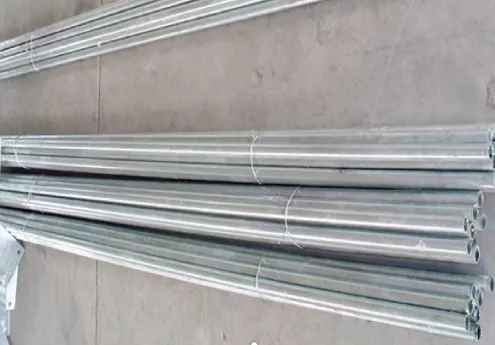loading...
- No. 9, Xingyuan South Street, Dongwaihuan Road, Zaoqiang County, Hengshui, Hebei, China
- admin@zjcomposites.com
- +86 15097380338
- Welcome to visit our website!
Exploring the Benefits and Applications of FRP Vessels in Modern Industries
Understanding FRP Vessels Characteristics, Applications, and Advantages
Fiber-Reinforced Plastics (FRP) have emerged as a revolutionary material in the manufacturing of diverse industrial vessels. Combining fiber reinforcement with a polymer matrix, FRP vessels are known for their superior strength, durability, and resistance to corrosion. This article explores the characteristics, applications, and advantages of FRP vessels, highlighting why they have become a preferred choice in numerous industries.
Characteristics of FRP Vessels
FRP vessels are composites made from a variety of reinforcing fibers—such as glass, carbon, or aramid—embedded in a resin system like polyester, vinyl ester, or epoxy. The resulting material is lightweight yet incredibly strong, capable of meeting the demands of various operational environments.
1. Corrosion Resistance One of the key benefits of FRP vessels is their exceptional resistance to chemical corrosion. Unlike traditional metal vessels, FRP does not rust or corrode when exposed to aggressive chemicals, making them ideal for storing and transporting corrosive substances.
2. Lightweight Compared to metal vessels, FRP vessels are significantly lighter, which reduces shipping and handling costs. The reduced weight also allows for easier installation and lower structural requirements when mounting or anchoring.
3. Durability FRP vessels are designed to withstand the harsh environmental conditions commonly found in industrial settings. They are resistant to UV radiation, temperature fluctuations, and other environmental stressors that can compromise the integrity of conventional materials.
4. Customizability FRP technology allows for a high degree of customizability. Vessel designs can be tailored to specific requirements, including size, shape, and pressure ratings, enabling manufacturers to meet unique client needs effectively.
Applications of FRP Vessels
The versatility of FRP vessels has led to their widespread adoption across various industries, including
1. Chemical Processing In the chemical industry, FRP vessels are extensively used for storing and transporting corrosive chemicals. Their ability to resist chemical attacks enables safer operations and reduces the risk of leaks or spills.
frp vessels

2. Water and Wastewater Treatment FRP vessels are commonly utilized in both municipal and industrial water treatment applications. Their corrosion resistance and structural integrity make them suitable for tanks, clarifiers, and other components involved in the treatment process.
3. Oil and Gas The oil and gas industry employs FRP vessels in offshore and onshore applications. These vessels are used for storage, separation, and transportation of various fluids, including petrochemicals, where resistance to harsh environments is crucial.
4. Food and Beverage In the food processing industry, FRP is increasingly being used for storage tanks where hygiene and resistance to contamination are paramount. The non-reactive nature of FRP ensures that food products remain uncontaminated.
Advantages of FRP Vessels
The growing preference for FRP vessels can be attributed to several inherent advantages
1. Economic Efficiency Although the initial cost of FRP vessels may be higher than some traditional materials, the long-term savings realized through decreased maintenance costs, longevity, and reduced downtime can outweigh the upfront investment.
2. Environmental Impact FRP vessels contribute to sustainability efforts by reducing the overall weight and energy required for transportation, leading to lower carbon emissions. Additionally, their long lifespan means fewer resources are consumed for replacements.
3. Safety With a lower risk of leaks due to corrosion, and the ability to withstand extreme conditions, FRP vessels enhance safety in industrial operations. This is particularly critical in industries where hazardous materials are being handled.
4. Technological Advancements Ongoing research and development in FRP technologies continue to enhance the performance and capabilities of these materials. Innovations are leading to stronger, more durable products that can withstand even more extreme environments.
Conclusion
FRP vessels represent a significant advancement in materials technology, offering a range of solutions for various industrial challenges. Their unique properties—such as corrosion resistance, lightweight nature, and customizability—make them an indispensable part of modern manufacturing and processing applications. As industries continue to seek efficient, sustainable, and safe solutions, the prevalence and importance of FRP vessels are likely to grow even further.
-
The Rise of FRP Profiles: Strong, Lightweight, and Built to LastNewsJul.14,2025
-
SMC Panel Tanks: A Modern Water Storage Solution for All EnvironmentsNewsJul.14,2025
-
GRP Grating: A Modern Solution for Safe and Durable Access SystemsNewsJul.14,2025
-
Galvanized Steel Water Tanks: Durable, Reliable, and Ready for UseNewsJul.14,2025
-
FRP Mini Mesh Grating: The Safer, Smarter Flooring SolutionNewsJul.14,2025
-
Exploring FRP Vessels: Durable Solutions for Modern Fluid HandlingNewsJul.14,2025
-
GRP Structures: The Future of Lightweight, High-Performance EngineeringNewsJun.20,2025
